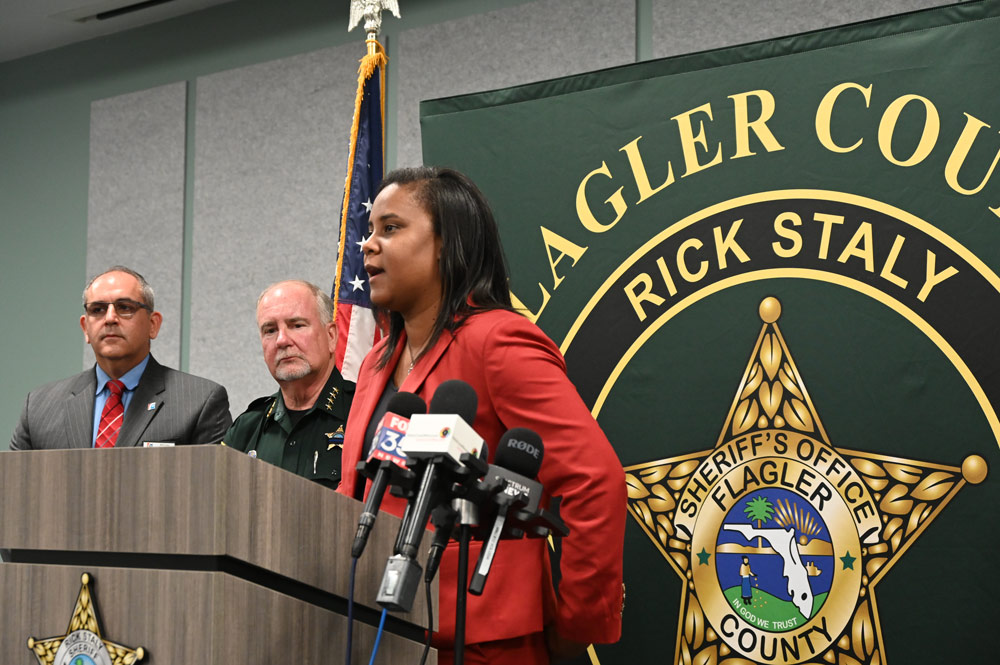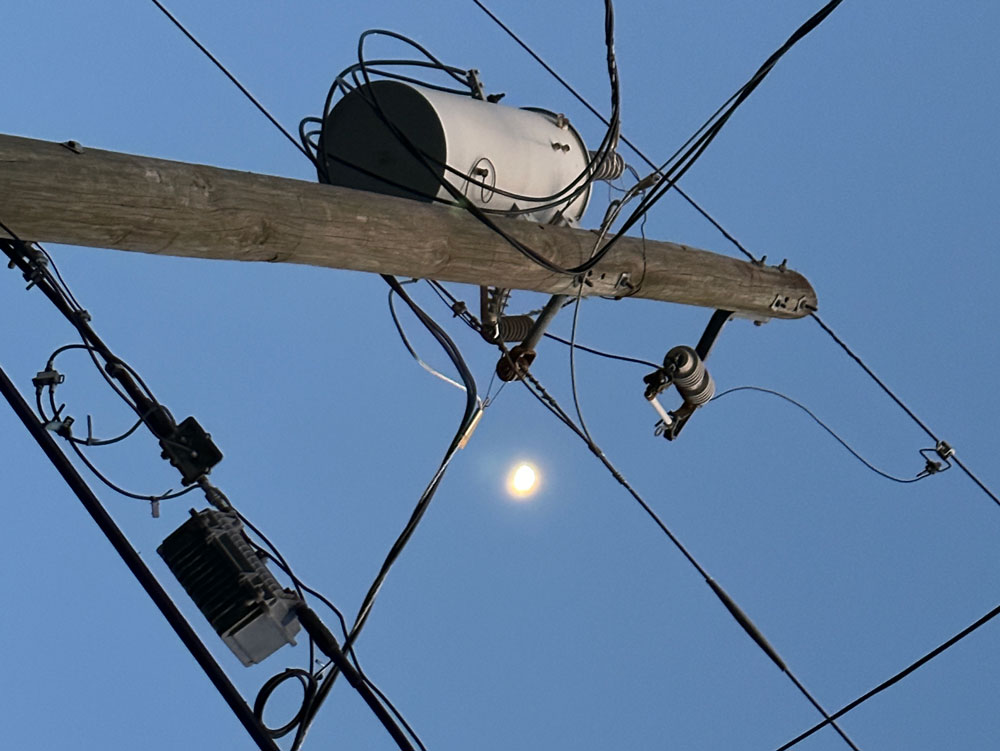Regarding the planned 10% increase in its contract with the Sheriff’s Office for the 12 School Resource Deputies it funds, the Flagler County School Board had few objections. Compared to $1.377 million, the budget for the upcoming year is $1.52 million. Overtime expenses are not included in the figures.
Half of the cost is covered by the County Commission, while Palm Coast adds an SRD on its own dime, for a total of 13.
The board is more dubious of a proposed addition to the contract: a 13th floater deputy who would raise the contract’s cost by 20%, to $1.65 million, during a year when the district is already struggling financially and receiving no additional Safe Schools funding from the legislature.
Ironically, the expansion is meant to lower overtime expenses. During an hour-long discussion at a School Board workshop this afternoon, no one could say whether it will, so the plan was left on hold until the board had more answers than questions. On July 22, the board is expected to vote in favor of the contract.
When regular SRDs are absent due to illness, vacation, training, or being preoccupied with paperwork following an incident, the district pays deputies to provide security at extracurricular activities, sporting events, and on campus. This year, the district only paid $57,000 in SRD overtime for extracurricular events. The whole amount of overtime compensation, including on-campus expenses during school hours, is unclear. Furthermore, it’s unclear how much of that $57,000 the floater could remove because overlapping occurrences would necessitate additional security that the floater couldn’t provide all at once.
That made school board members uncomfortable when they discussed the concept with School Safety Coordinator David Bossardet and Sheriff’s Chief Mark Strobridge, who was returning to his previous position as Palm Coast’s assistant city manager for an afternoon sabbatical. Board Chair Will Furry and Board Member Derek Barrs were similarly apprehensive, and board member Janie Ruddy, who questioned the contract in general, was particularly worried about the inability to evaluate the proposal without clear facts.
However, I’m worried that for $154,000, we’re getting a deputy to cover these vacancies as well as Friday nights in the fall, Ruddy remarked, alluding to football games. That role doesn’t appear to be full-time. She questioned Bossardet about any intentions to make the most of the deputy’s time. In order to plan ahead and avoid making rash judgments, Bossardet stated that the district will create a matrix outlining security expenses in advance.
The district has consistently made a clear distinction between safety and deputies. That is their justification. That line was not drawn by Bossardet. The safety coordinator stated, “I don’t personally feel it’s adding extra safety to our campuses, whether we go with the floater deputy or not.” For as many years we have been using our current approach, we have been safe and have created a safe environment. The purpose of the floater deputies was not to increase school safety. To determine if it can help reduce some of those expenses, this is being introduced on a trial basis.
But there was really no data to support the proposal.
Ultimately, this unknown might eventually increase the cost here, Furry stated. Instead of implementing the program permanently, he would have wanted to pilot it for a year. There doesn’t seem to be any concrete data to compare in order to predict exactly how the [overtime] will be.
Barrs, a former SRD, was not without his doubts. Using the other acronym for the position of school resource officer, he stated, “Being an SRO, I get it.” I see the value, and I am aware of what they contribute, but we are also at a point in time where we must consider what is good for the money, just like the sheriff’s office and everyone else must.
Ruddy listed all of the unknowns that lie ahead, including frozen budgets and worries about the district’s fund situation. Therefore, there are many wonderful things we would like to have and do, but in this uncertain time, are they affordable? She enquired. We are not living in a time of plenty, therefore we must concentrate on what we need to keep our level of safety high rather than on the extras. She was particularly concerned about the absence of information that the finance department ought to have supplied.
On July 22, the board will receive the matrix Bossardet mentioned. Whether the board would have more lucid overtime data was less certain.
Beyond that. The contract’s sole notable modification allows all sheriff’s deputies access to the school. At the moment, keys or electronic codes are the only ways for SRDs to enter the campus. Since the district is switching to all-electronic access throughout the district, the agreement will be modified to permit access to any sheriff’s staff in the event of an emergency.
Ruddy, however, had more concerns over the terms of the actual deal. She believes that instead of paying a fixed charge, as the district does, for example, its legal counsel, it makes the district liable for the whole salary of these officers. According to Ruddy, it appears that we are footing the bill for their vacation and sick leave. Furthermore, in contrast to the budget that was allocated, for instance, under Safe Schools, we must absorb [cost of living] increases that have been agreed upon with the sheriff’s office. The state appropriation for public school security is known as “Safe Schools.”
“It has always been a service provider type of contract in the nine years that I have been involved in contract negotiations,” Strobridge said.
According to Strobridge, the sheriff’s overall budget increased by more than $1 million as a result of the significant increase in state retirement payments. The expense of health care has also gone up. According to Ruddy, cost increases in the district are comparable.
Ruddy wants to link budgeting for Safe Schools to increases in SRD expenses. To put it another way, the sheriff’s contract should reflect a percentage increase of 1% or 2% if the legislature decides to boost funds for Safe Schools. Coincidentally, Safe Schools funding for the fiscal year that started on July 1 was not increased by the legislators this year. According to board member Derek Barrs, the Florida Sheriff’s Association, the board, and the sheriff should prioritize lobbying against stagnant Safe Schools funding.
The crime index also governs that money’s formula. According to Strobridge, safer communities receive proportionately less funding. The crime index for Flagler County is low. Thus, it decreases.
Ruddy wasn’t prepared to accept that strategy. We have lobbyists. She remarked doubtfully, “We went, we spoke, and we didn’t get pretty much anything we asked for.” Therefore, we can’t really put all of our eggs in one basket. This year, we will consume it. I have no doubt that they will pay attention to us next year.











